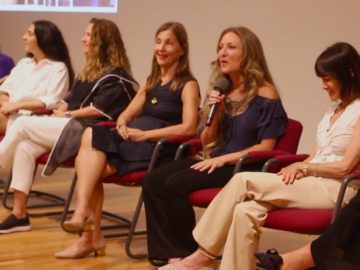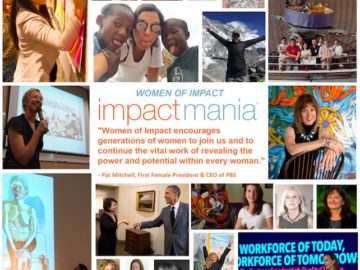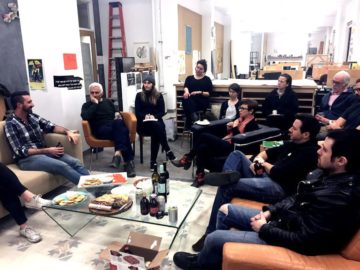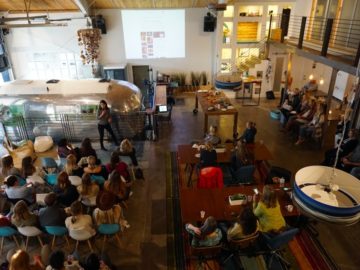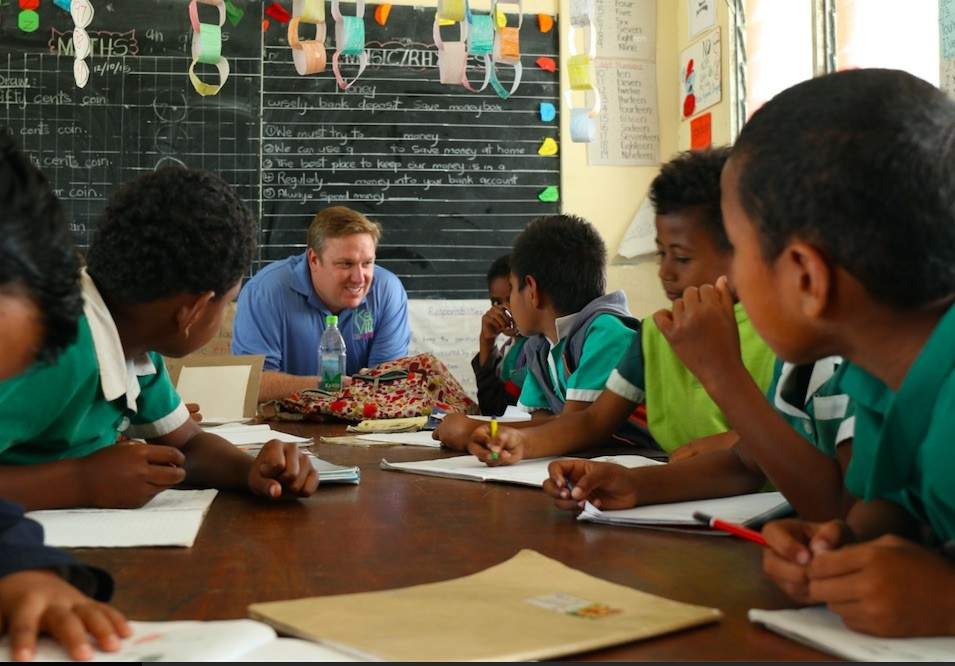
Paul Phillips in Fiji
The New Fijian Man
BY ILSE WESTERIK
impactmania’s Ilse Westerik interviews one of her favorite impact makers: Ka-Viti’s CEO, Paul Phillips.
Paul Phillips from Ka-Viti Water is my favorite impact maker because he is very dedicated and passionate about his goal of improving the lives of the kids in Fiji.
Ka-Viti’s school project serves both the consumer and the local population by providing a high-quality product while improving children’s futures.
What is Ka-Viti?
Ka-Viti is a new brand of natural artesian water from the Fiji Islands. In Fiji, if someone says, he’s Ka-Viti, you are referring to the old Fijian man with the big hair and the sandals — the original Fiji guy.
Ka-Viti means proud to be from Fiji, or that’s a product from Fiji. We are saying we’re proud to be from Fiji. It encompasses our whole brand and what we’re about; we’re a small producer that has real deep roots in the community of Fiji.
What inspired you to start the business?
My business partner, Irshad, was born and raised in Fiji. In his late teens he made it to the United States. Through a lot of hard work, he was able to start a business.
Irshad came to me and said, “Hey, it’s my dream to go back to Fiji and start a business that is involved in the community. We can make a difference.” So I said, “Sure. Let’s go to Fiji.”
It didn’t take a lot of convincing to go to Fiji.
At the time, my wife and I had very young kids with twins less than one year old. Just getting away for a good night’s sleep sounded great!
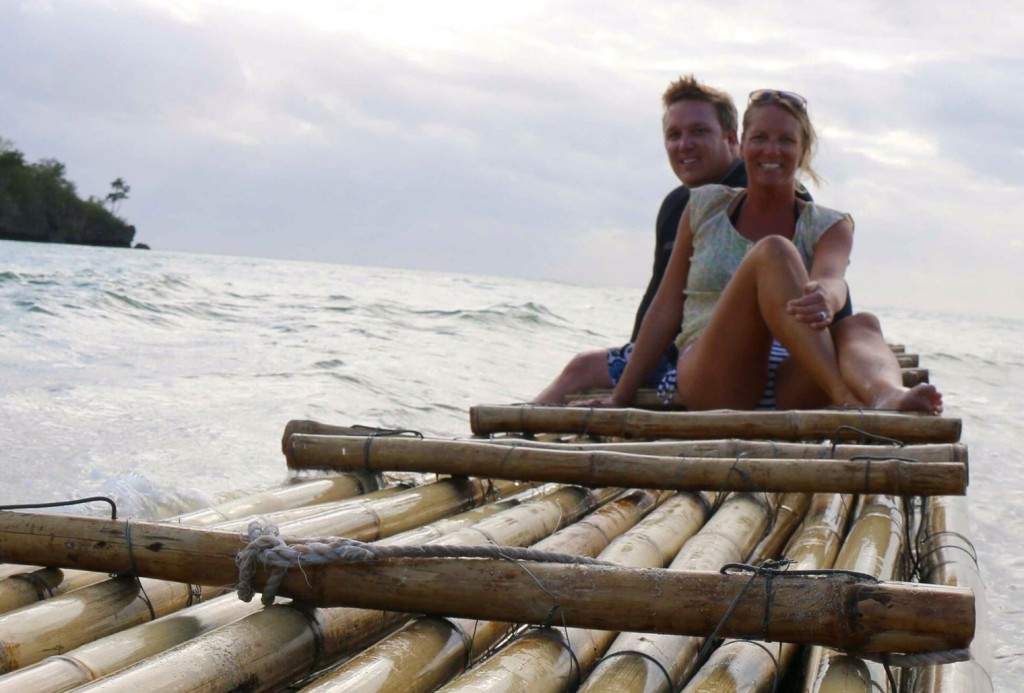
Paul and his wife Christy
Through Irshad’s family, he came to own 25 acres of land in Fiji. He discovered that there were a lot of underground aquifers running underneath the property.
I continued to help him for several months and eventually decided to join him and be a partner in the business. We went through the process of getting all the land zoned properly and getting a bottle facility built on the land.
Irshad and I shared a vision that was pretty immediate. There’s a lot of opportunity to make a difference in people’s lives. That’s affected me.
How does Ka-Viti water make a difference?
We’ve helped give water to people that were in need after a cyclone went through Fiji. We’ve been involved in community events like local rugby matches or a parade in our local town. We’ve helped the schools; buying school supplies, painting the buildings, all sorts of stuff.
It’s been a little bit scattershot. It was important for us as a business to understand that having a particular focus can be more powerful.
Education
We’ve been involved in a school down the road from our facility for several years. We went back to the school and started asking more and more in-depth questions to figure out if there were some roadblocks preventing kids from having the opportunity to have a good education.
Shoes
I remember when we took our kids to Fiji the very first time. They were 4 and 5 years old, and we went to that same school.
My kids were out playing soccer with kids and my middle boy, Luke, saw that very few kids were wearing shoes. We came back, and Luke always remembered that you don’t have to wear shoes while in Fiji. It didn’t really click with us until last year that the kids aren’t wearing shoes … because it’s an island culture and because “hey, it’d be so neat not wear shoes to school” but because they don’t have shoes.
There are other things that are preventing kids from going to or doing well in school.
School Supplies and Uniforms
All kids need to bring school supplies for themselves. Schools are not photocopying every single homework assignment and handing it out. The kids are using their own notebooks to write things down in. Same thing with school uniforms: The uniforms are mandatory — which I think is great — but if you can’t afford the notebooks and school uniforms, then it’s a barrier.
Lunch
The last thing is school lunch; maybe parents won’t send their kids to school because they can’t send them with a meal for the day. Or kids will show up to school without a lunch for the day.
Eliminating Barriers
We’ve focused on a few things that will eliminate the barriers for kids either getting to school or being just comfortable enough to work during school and do good jobs.
People that have kids understand and believe that other kids should have the same basic ability to have an education and opportunities just like their kids do. I certainly felt that way.
I was in Fiji January 18, when school started. I was able to work with our team: handing out school packages to each of the students and get them ready for the first day of school.
It was incredibly rewarding. Education is one of the areas that can be a big lever for change.
Who is one of your favorite impact makers, someone who has left a professional or personal imprint on you?
There’s several. I think Toms Shoes is a great example of someone that started at a real grassroots level of seeing kids that are in need and having the gut reaction that we can fix it.
I can resonate with exactly that feeling that we had on the ground of seeing a problem and knowing that we can fix it.
What word would describe your journey?
Authentic. This whole business has become part of who I am and a part of even who my family is. Decisions are made from a very authentic standpoint. It’s not like a dialup business where we’re trying to market something different than who we are.
From the very first label that we printed, we said, “We’re a very transparent company. We’re clear about why we’re doing things, what we’re doing.” We work with our consumers to get feedback. Authentic, I guess, is the way that I feel about it.
What are the main drivers that make this business successful?
The world’s highest-quality water produced by a company that you can feel good about. Consumers know it will make a difference in a kid’s life.
How can people support your cause?
We’re sold on the shelf, for example, in Southern California, at Whole Foods. If you see us on the shelf, buy one; that’d be great. You can also go to our website and sign up for a monthly subscription of our water. We’ll deliver it to your house for free.
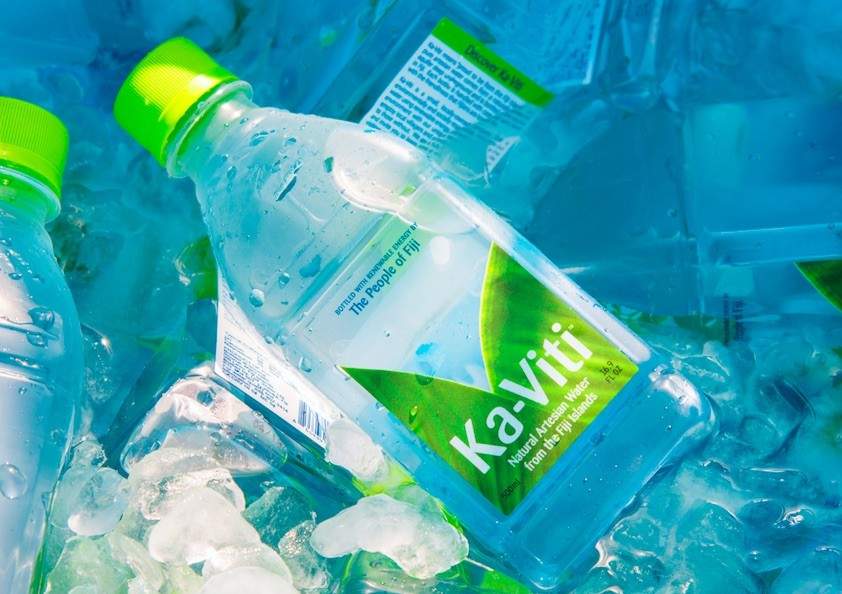
Ka-Viti Water
Then, on our website, go to Deliver a Future.
When we launched the monthly subscription that directly supports kids, several people came and said, “We’d like to buy water, but we’re also interested in just donating directly to this cause.” So we’ve set up the ability to make a tax-deductible donation. We make sure that 100 percent of what’s donated goes directly to these kids.
Follow us on social media, so you keep up to date with where we’re going and what we’re doing.
What’s Next?
We are working on telling the story to the larger retailers because they can pull volume to increase the impact. Then we’re also growing the monthly subscriptions because a base of loyal customers provides a reliable way to support the community.
The part that excites me the most is how much momentum can we get in selling our water so we can impact kids in all of Fiji. To me that would be really exciting.

